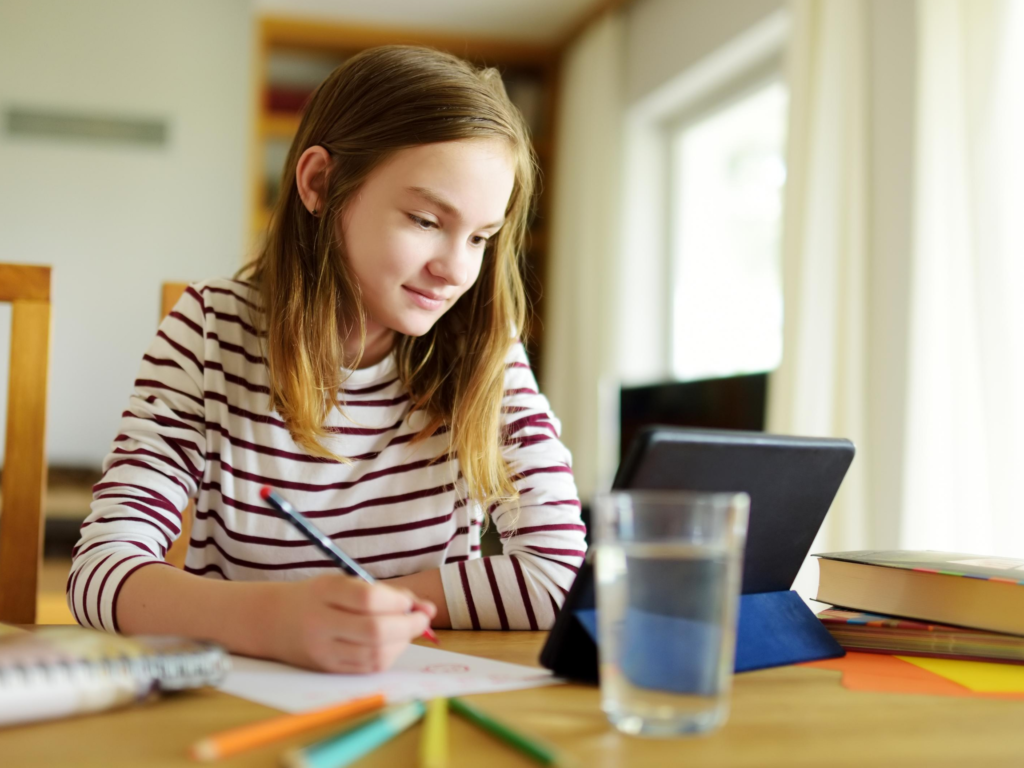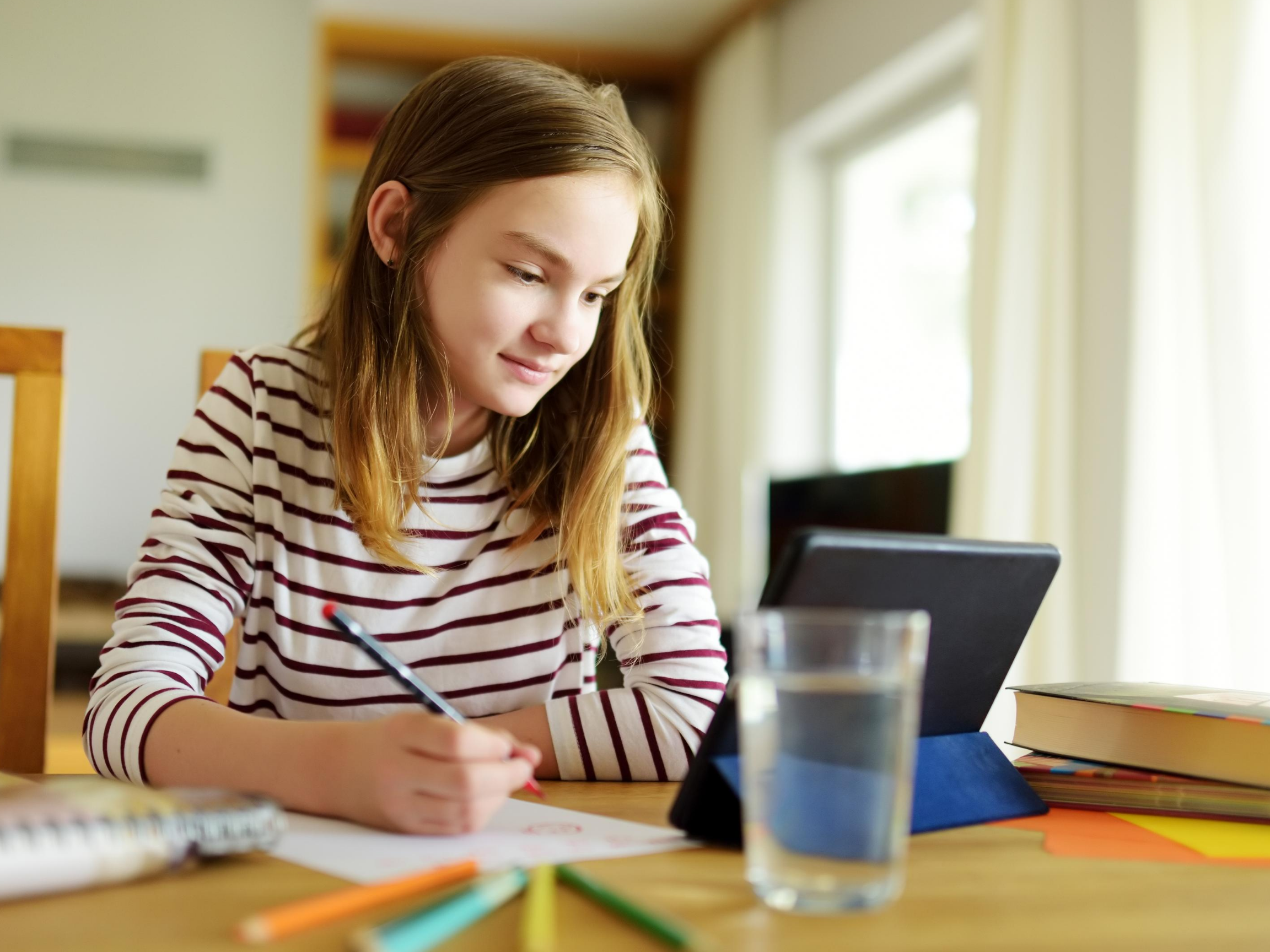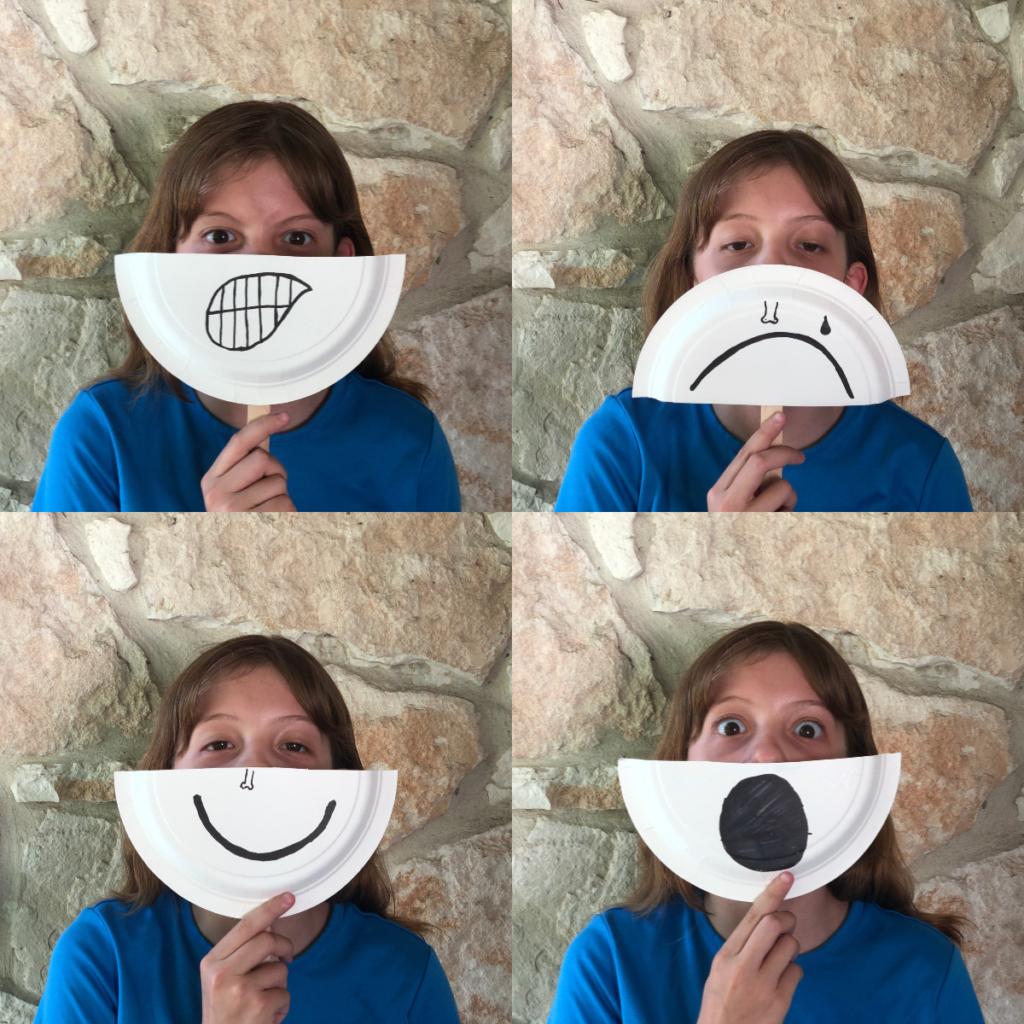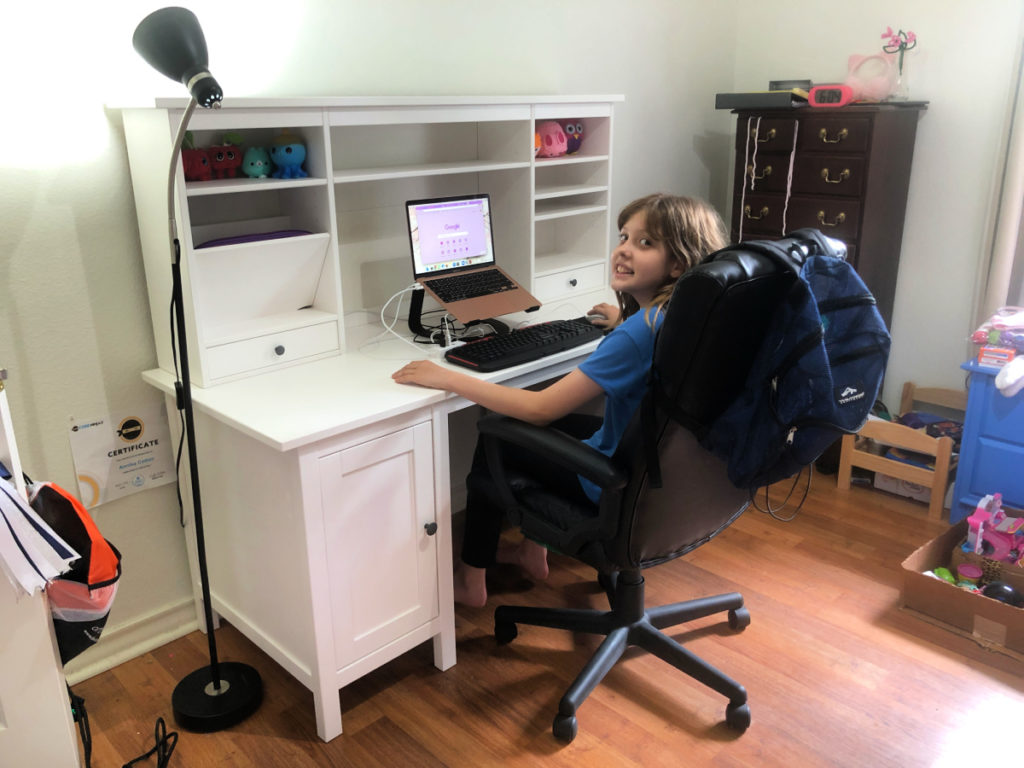
As we get ready to go back to school this fall, knowing that many of our children will be studying at home again for a while, what have we learned since the spring that will help us succeed at distance learning? Over the summer, my family and I have played with at-home learning activities and paid close attention to our social, emotional, and physical wellness. We have also made changes to our technology use and physical spaces, and had conversations about dreams and goals.
Every family’s situation is unique, and schools have different requirements and expectations for distance learning, but here are a few tips from our experiences that might help you, too. For more ideas, and to share your suggestions for successful distance learning, be a part of the conversation at the San Antonio Charter Moms discussion group on Facebook.
Social and Emotional Wellness
One of the hardest things about distance learning for kids is being away from their friends. That’s why it’s especially important to be deliberate and conscious of ways to keep your kids supported and connected. Sitting down with your kids to draw a friend tree—like a family tree, but featuring their friends and support network—is a way to reinforce the idea that they are not alone. Even if they are not seeing their friends face to face, they still have people cheering them on and helping them succeed.
Another activity that builds connections is storytelling. Parents and older adults can start a tradition of sitting down with their children or grandchildren. Depending on the child’s age, they could do a craft together or create a family story vault.
When kids and teens are online with their friends, sometimes they feel awkward and unsure of what to do. Helping kids to plan an activity, such as a virtual scavenger hunt or a game night, can support connections over conflict.
These days, our lives are so different and disrupted, that both kids and adults need reminders to think about our feelings and process them in constructive ways. Art can be a useful tool to identify and express our feelings. We recommend making some Grumpy Pants and then washing them away, or making faces—literally, expressive masks—that lead to discussion and pretend play. There are also apps, books, and podcasts that help us understand our feelings and learn to regulate them.
Exercise and Sleep
For kids to do their best work academically, they need to be well rested and able to concentrate. The best way to set them up for success is to make sure they get enough sleep and exercise every day. Getting your kids on a consistent sleep schedule puts the odds in your favor that they will get enough rest every night.
Also, kids need physical activity to balance out the time they spend on their computers and working at their desks. We recommend working out at home with mindfulness and yoga, a coin flip game, or basketball game; going for a walk or bike ride on the greenway trails; or trying some dance exercises.
When kids learn to cook alongside their parents, it can lead to less snacking and more healthy eating. It can also spark curiosity about food and science, and maybe inspire kids to plant a garden.
Workspaces and Technology
In the spring, we thought we were ready for the technology load of distance learning, but we were wrong. Over the summer, our family has upgraded our tech and made adjustments to our work and study areas. The goal is to improve ergonomics for every family member and keep us all working harmoniously in the same house.
We evaluated our desks and chairs, and made a few changes: we replaced our daughter’s work table with a desk from IKEA, and brought home my office chair. (It broke my heart, but we closed the San Antonio Charter Moms office for the time being, until we can have in-person meetings again.)
We also replaced my work laptop and handed it down to my son. I bought a laptop stand to help with live streaming, and then my kids wanted laptop stands, too—as well as keyboards and mice to plug in to their laptops. For both kids, we replaced their headphones that had worn out.
This summer, both kids have been practicing touch typing, which we hope will make it easier to enter their work into learning management systems like Google Classroom. They have also been experimenting with office software; a fun way to boost your skills in Microsoft Excel is by playing free online chess.
My husband researched and made sure that our internet connection can carry the load of four people doing video calls. He also made adjustments to our backup devices and cloud storage plans. We checked the security on our devices, such as resetting PINs and passwords.
Distance learning is causing kids to spend more time on screens than ever, and we need to protect their eyes from visual stress. We bought blue light filtering glasses for our daughter who has 20/20 vision; the rest of us already have corrective lenses with coatings. If your child is struggling with learning at a computer, it may be wise to get their eyes checked in case they need vision therapy.
Creativity and Questioning
Distance learning has thrown so many norms into disarray, but maybe the disruptions can bring us to some helpful insights. Rarely have parents seen their children’s curriculum so up close and personal. Sometimes, during distance learning, it makes sense to just follow the directions from the school. At other times, we have the opportunity to pause, observe, and reflect. By asking good questions, we can shape our children’s learning in ways that are unique to them and make their work feel relevant.
An inquiry-based learning approach, combined with a process for creating a presentation or product, encourages kids to put their time and energy into studying the questions that matter the most to them. Kids are curious about current events, and the inquiry-based approach is a good way to make learning relevant.
Similarly, changing the roles, and letting kids teach a lesson to the adults, is a great way to enable children to take ownership and feel competent about their favorite subject.
Having a conversation with your kids about setting goals can make distance learning, and the activities they do in their free time, more meaningful. Tools like these free resources from Crea can help you and your kids work together to map out a learning plan for a project that they feel invested in. Asking questions is a starting point for helping kids grow into creative leaders. They can envision the better world that will emerge after the pandemic, and see themselves playing a role in building it.
Succeeding at Distance Learning
Whether our kids are doing distance learning for a few weeks or for several grading periods, we want them to get a good start to the school year. To do our best under challenging conditions, we recommend paying attention to these areas: social and emotional wellness, exercise and sleep, workspace and technology, and creativity and questioning. With resources from our blog, as well as the teamwork of the members of the San Antonio Charter Moms discussion group on Facebook, you and your family can succeed at distance learning.
Read More About Tips for Distance Learning
- “Learn Everywhere: Our Roadmap for At-Home Learning,” Inga Cotton, San Antonio Charter Moms, May 19, 2020
- “Learn Everywhere: Helping Parents Support Their Children’s Education at Home,” Inga Cotton, San Antonio Charter Moms, May 12, 2020
- “Staying Creative during COVID-19,” Beyond Education, May 13, 2020
- ”Distance Learning: Five Survival Tips From the Homefront,” Rebecca Scarpino, San Antonio Charter Moms, May 6, 2020
- “Tips to THRIVE from a Veteran Homeschooling Mom & Educator,” Beyond Education, April 18, 2020
- ”Big Goals, Relevant Work, and Flexibility: How to Make At-Home Learning Work for You,” Kristen Henry, San Antonio Charter Moms, April 15, 2020
- ”Keep Calm and Parent On: Advice for Accidental Homeschoolers,” Caitlyn Baker and Shannon Ruddell, San Antonio Charter Moms, April 6, 2020
- ”Resources for Staying Active with Kids While Social Distancing”, Amy Johnson, San Antonio Charter Moms, March 19, 2020
- Distance Learning Resources—watch Charter Moms Chats with Inga Cotton
- Charter a Voyage of Learning—at-home learning activities, organized by topic
- Charter a Summer of Learning—view learning activities on our event calendar, starting from June 2020




